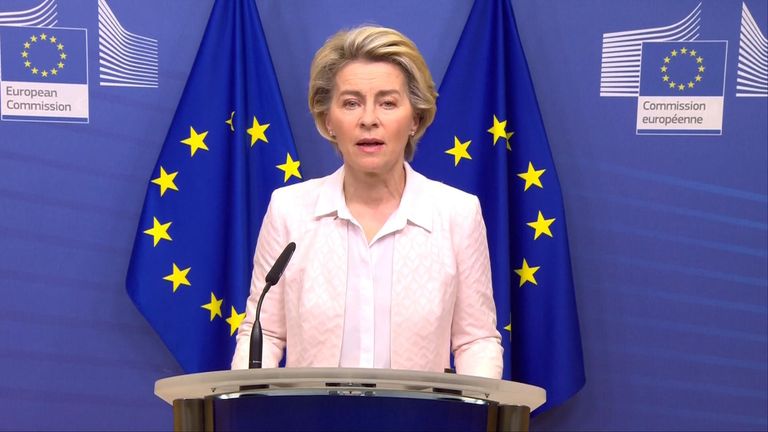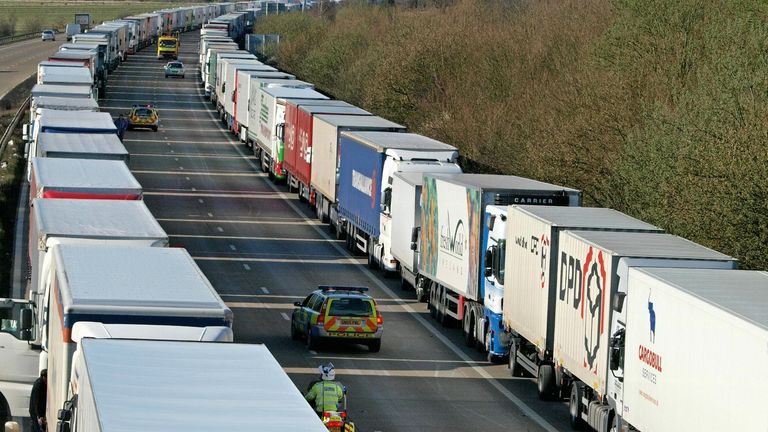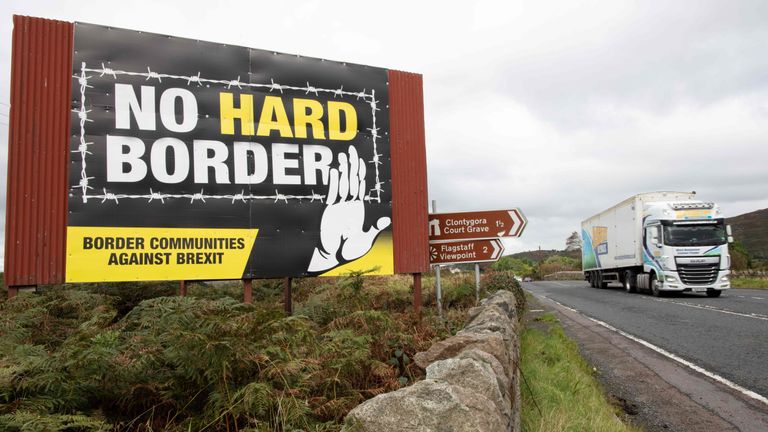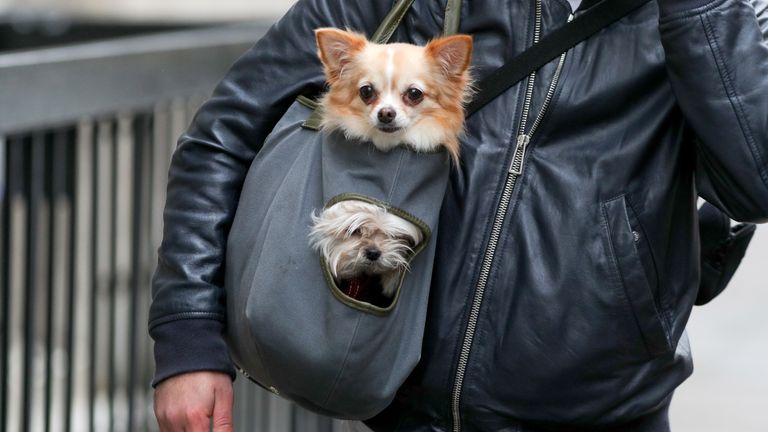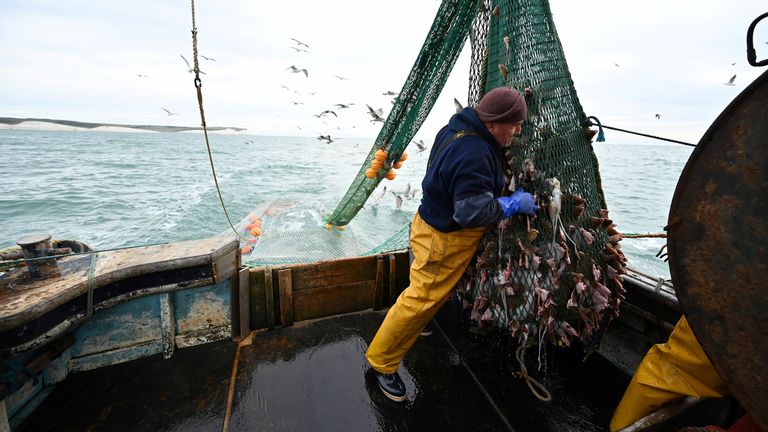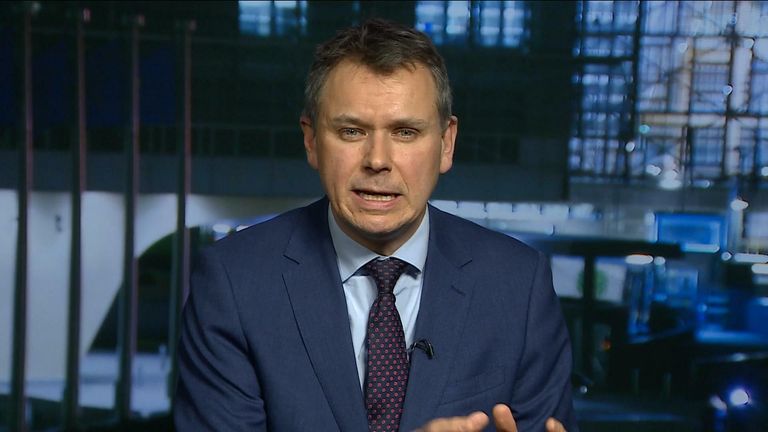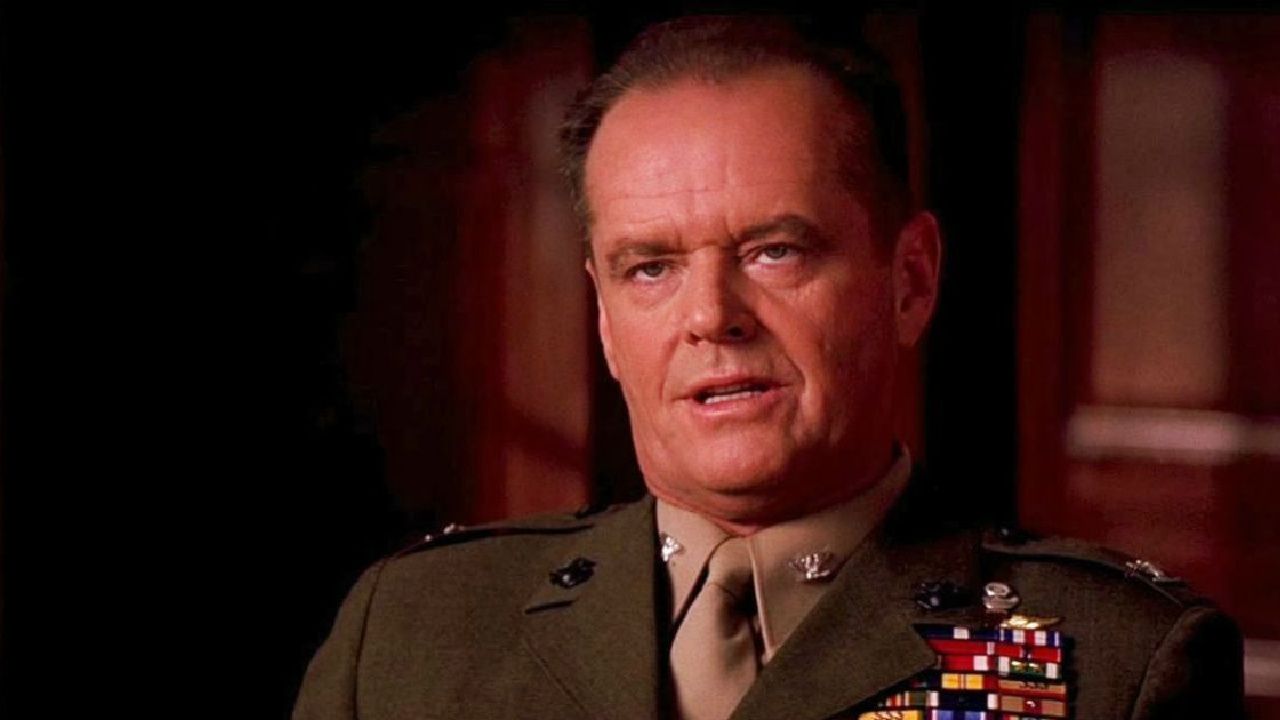Talks between the EU and UK have paused after both sides said there were “significant differences” on key issues.
Negotiators hoped that a conversation between Prime Minister Boris Johnson and European Commission President Ursula Von der Leyen would provide the political impetus to unlock the deadlock.
But with gaps still existing between both sides, what is at stake if no deal is reached? Sky News explains.
Tariffs and customs checks
Free trade between the EU and UK ends on 1 January and without a deal the UK would trade on World Trade Organisation (WTO) terms.
Imports and exports to and from the EU, and other countries the UK has no trade deal with, would be subject to tariffs and checks at the border, which means some products could become more expensive.
Under WTO rules medicines are not subject to tariffs – but there could still be delays.
The government has warned of long queues if freight drivers do not complete paperwork in advance, even if a deal is struck, and a lorry park is being built in Kent to help with any disruption.
Goods entering the UK will not face full customs checks for six months under a phased-in approach, but requirements will ramp up until July 2021.
Northern Ireland
The Northern Ireland protocol, set out in the Withdrawal Agreement, means that even if there is no deal Northern Ireland would remain aligned with some of the EU’s customs rules and standards to avoid goods being checked along the Irish border.
However, the Internal Markets Bill could give ministers the power to override EU customs law. The government says it is simply trying to clarify the terms of the protocol to avoid disruption.
Travel – Aviation
Without any agreement on aviation, flights between the UK and EU could be grounded – but both sides have indicated flights would be allowed to continue in the event of no deal.
British airlines, however, would no longer be under the supervision of the EU Aviation Safety Agency.
Travel – Roads
Anyone driving to Europe in their own car might need extra paperwork like a green card or an international driving permit.
The licences that hauliers need for work in Europe would no longer be valid and they would be reliant on a limited number of permits from the European Conference of Ministers of Transport.
Travel – Pets
The existing pet passport scheme will end on 1 January and owners will need to apply in a new process that can take four months.
Travel – Visas
Those travelling to the EU will not need a visa for stays of up to 90 days out of any 180-day period in the EU.
However a visa may be needed for longer stays or to work or study.
Fishing
Fishing represents less than 0.1% of the UK’s economy, but control over UK waters has become a symbolic issue for Boris Johnson and EU countries like France, Belgium, the Netherlands and Denmark.
Without a deal, the UK could stop EU access to UK fishing waters and have full control over its fishing quotas.
However, UK fish heading for the EU market – which makes up the majority of our fish exports – would be subject to tariffs.
Mobile roaming charges
Without a deal mobile operators will be able to implement roaming charges after the transition period.
However, bilateral deals between EU and UK operators could prevent roaming charges.
Legislation has been passed to make sure people are protected against charges of more than £45 a month without knowing.
State aid
The issue of state aid goes to the core of the level playing field debate about fair competition.
In a no-deal scenario, the UK government would be able to intervene to support businesses without being bound by EU state aid competition rules.
Under the Withdrawal Agreement, Northern Ireland would still have to stay aligned to EU rules.
However, the Internal Markets Bill – which is back in the House of Commons on Monday – could give ministers powers to override rules on state aid in Northern Ireland.
The UK would still have to follow the looser WTO agreement on subsidies and countervailing measures on goods.

